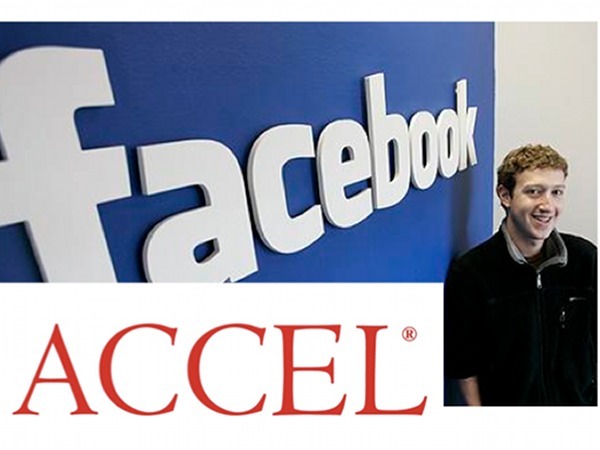 A recent trade in Facebook stock and an upcoming auction-styled process for Facebook shares on SecondMarket may indicate the top of a short-term bubble.
A recent trade in Facebook stock and an upcoming auction-styled process for Facebook shares on SecondMarket may indicate the top of a short-term bubble.
Accel Partners recently just trimmed its significant ownership in Facebook by some 17%, bringing its ownership stake down to some 8% of the high-flying social network. Accel sold shares at $71.57 a share (or $14 after the 5-to-1 stock split), for a total amount of $516 million at a valuation of $35 billion, according to sources.
The introduction of an auction-styled process is possibly an indication of a frothy private capital market, for at least the brand-name companies.
Recall, auctions in the equity markets were introduced around the Internet bubble years (the mother of frothy market periods) as a way to allow individual investors to participate in an offering and get a better price for shares that would soar right after the IPO. Often big institutional players would have the opportunity to get in at a lower price and then flip it in the aftermarket, leaving individual investors with high-priced stock while institutions pocketed nice gains.
“The reason we (WR Hambrecht) started using auctions for IPOs was because of the inefficiencies of pricing the deal,” said Mike Ackrell, an investment banker at eponymous firm Ackrell Capital, who was the former head of investment banking at WR Hambrecht. “The rule of thumb is that underwriters price an IPO at a 10-15% discount to where you think the stock will trade – so you give the IPO investor a small bump/reward for participating… The problem back in the Internet bubble was that stocks could move as much as 100%+ on the first day of trading…so the auction was put in place to try and get a better “clearing price” on the actual pricing of the IPO to take some of the “pop” out of the stock.”
In effect, auctions are meant to determine a better sense of true demand and price. This is particularly useful in the private sector when there is less information and a less active /fluid market to make a reasonable gauge on the true value of a stock.
Indeed, the valuation of Facebook is like a fast-moving target. About one year ago, Elevation Partners bought $90 million of preferred shares on December 1, 2009 for $19.70 a share, pricing Facebook at $9 billion.
Just a few months later, in the second quarter of this year, Elevation bought more than $120 million of preferred shares at $50 a share, and $45 per share for common in October. Overall, Elevation has bought $223 million in Facebook shares.
Meanwhile, TCV (Technology Crossover Ventures) has spent $100 million in the second and third quarters to buy both preferred and common. TCV spent $45 a share for common and $52 a share for preferred. TCV has spent $144 million to buy Facebook shares.
Clearly, the price institutions are willing to pay are pretty high – $71 for most likely preferred shares – according to the last deal struck on November 12.
Now the question is whether the true value of Facebook is closer to $70 for preferred, or the starting auction price of $20 for common.
My guess is no one will be willing to sell common shares at $20.
Here’s the email sent to buyers and sellers of Facebook shares.
To All Facebook Market Participants:
Over the past two years, the marketplace for Facebook stock has grown tremendously. SecondMarket has succeeded in centralizing much of this market activity, having completed over 120 Facebook transactions worth more than $300 million. As the leader in this market, we have gained considerable experience that has allowed us to develop and refine robust procedures for buyer/seller qualification, price discovery, documentation and settlement.
We have seen this market grow, and we have seen it change dramatically. In the beginning, there were few participants interested in buying or selling Facebook stock. Today, at any one given time, there are hundreds of interested buyers and dozens of interested sellers attempting to execute transactions. Negotiating “one-off transactions” is now inefficient, time consuming, and resultant in high price volatility intra-week.
So, in order to help buyers and sellers to connect more efficiently, SecondMarket will be making a change in the methodology by which it facilitates a secondary market for Facebook securities. Starting next week, we will be employing a weekly auction system. The first pilot auction will kick-off on Monday, 11/22 with a reserve price of $20.60 per share. Orders from sellers will be accepted until midnight EST on 11/22. At that point, all previously qualified buyers will be informed of the total quantity of shares for sale at that minimum price. Orders from buyers will be accepted until midnight EST on 11/23. Transaction documentation will be disseminated on Wednesday, 11/24, and must be executed by Friday, 11/26 at 5:00 PM EST.
If you own shares that you are eligible to sell and wish to participate as a seller, please complete the attached Seller Information Sheet and submit it to SecondMarket at fb@secondmarket.com by midnight EST on Monday, November 22nd.
If you would like to participate as a buyer, please complete the attached Buyer Information Sheet and submit it to SecondMarket at fb@secondmarket.com by midnight EST on Tuesday, November 23rd.
(Image source: i.telegraph.co and blog.personlifemedia.com)















